2011 Podcasts
*** The website is currently going through an upgrade, during which this page won’t be updated with new podcasts. But never fear! Podcasts are still happening in 2022. You can catch each new episode by clicking on any of the links in the banner below, on your favourite podcast service by searching ‘Imperial College Podcast’, or on our Soundcloud account. ***
The podcast is presented by Gareth Mitchell, a lecturer on Imperial's MSc Science Communication course and the presenter of Digital Planet on the BBC World Service, with contributions from our roving reporters in the Communications Division.
If you have feedback that you'd like to share or ideas for future editions, we'd love to hear from you.
Please contact Hayley Dunning; +44 (0)20 7594 2412.
You can also find the podcasts most major platforms, including YouTube, Apple Podcasts, Stitcher and Spotify.
What do you think?
We're seeking feedback from our listeners! What are we doing right? What could we improve? What are some of your favourite podcasts? Do you listen on the morning commute, or when kicking back with a nice cup of tea? We want to know!
Please take five minutes to fill out our listener survey – your feedback is so valuable to us.
Podcasts 2011
14 December edition
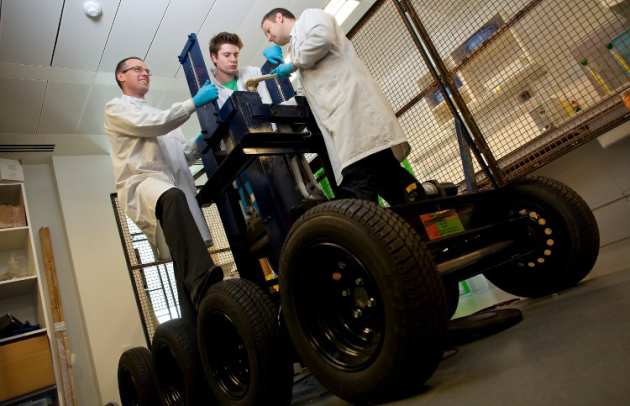 In the 14 November edition: The role of green technology in fuelling China’s rapid development, plus a look inside the research centre that aims to protect soldiers from the devastating effects of roadside bombs.
In the 14 November edition: The role of green technology in fuelling China’s rapid development, plus a look inside the research centre that aims to protect soldiers from the devastating effects of roadside bombs.
Listen to the complete streamed podcast - 14 December 2011
Or listen to individual chapters
- Recent news from Imperial, including a new technique for measuring narrowing arteries, a student challenge to help Paralympic athletes, and what wolves are telling scientists about climate change’s effects on animal populations.
- Dr Ling Ge from the Department of Chemistry discusses her recent address to the European Commission on the importance of green technologies for the EU and China.
- Dr Adam Hill takes us inside the new Royal British Legion Centre for Blast Injury Studies to see how Imperial researchers are simulating the effects of roadside bombs on the body.
- An extract from Professor Helen Ward’s inaugural lecture ‘Hustling for Health’, in which she recounts how she became involved in research on HIV in sex workers.
23 November edition
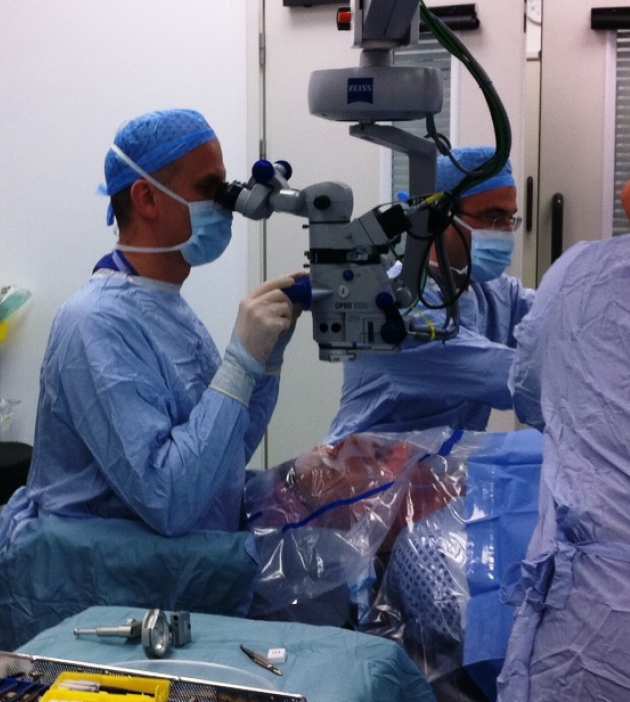 In the 23 November edition: How gene therapy could treat a rare form of blindness and how economics shapes discourse on climate change.
In the 23 November edition: How gene therapy could treat a rare form of blindness and how economics shapes discourse on climate change.
Listen to the complete streamed podcast - 23 November 2011
Or listen to individual chapters
- Researchers battle to rescue a World War Two bomber, students use genetic engineering to protect crops from soil erosion, and a fungal disease killing amphibians is linked to animal trade in our news roundup.
- As the first patient is treated using gene therapy for a form of blindness, Professor Miguel Seabra tells us how 20 years of research in his lab has led to this groundbreaking trial. (The full interview is available here.)
- Tom Hoehn, Director of the Intellectual Property Centre in the Business School, discusses how to protect creative industries while fostering openness and innovation.
- Visiting speaker Sanjay Khanna from the University of Toronto suggests why the state of the global economy might change the way we should talk about climate change. (The full interview is available here.)
2 November edition
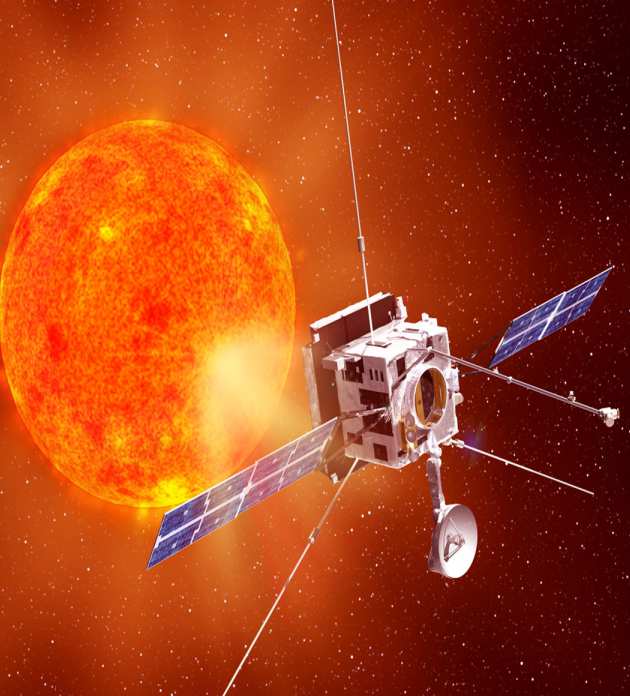 In the 2 November edition: Tackling tropical parasites in Africa and the European Space Agency missions aiming to answer the biggest questions in astrophysics.
In the 2 November edition: Tackling tropical parasites in Africa and the European Space Agency missions aiming to answer the biggest questions in astrophysics.
Listen to the complete streamed podcast - 2 November 2011
Or listen to individual chapters
- In the news section, we hear abou t research on the long term impact of p remature birth and computer components made from bacteria.
- Your Life On Mars: Professor Alan Fenwick on the Imperial initiative delivering millions of treatments for tropical parasites in Africa and what he would take on a trip to the Red Planet.
- Imperial physicists explain how the European space missions they’re working on will get up close and personal with the Sun, and give us a glimpse of the nascent universe.
- Quantum physicist and author Michael Nielsen discusses the quandary of whether scientists should share their ideas and data openly.
12 October edition
 In the 12 October edition: Imperial's neutrino expert Jordan Nash pays a flying visit to pod central, and find out what secret science has been going on at the College, we can't tell you, you just have to listen.
In the 12 October edition: Imperial's neutrino expert Jordan Nash pays a flying visit to pod central, and find out what secret science has been going on at the College, we can't tell you, you just have to listen.
Listen to the complete streamed podcast - 12 October 2011
Or listen to individual chapters
- Podcast presenter Gareth Mitchell passes the time with particle physicist Professor Jordan Nash and asks what item of clothing he would eat if it turns out neutrinos really travel faster than light
- Recent happenings from the College, including the genetic cause cardiac hypertrophy, the thickening of the walls of the heart, and the news that Imperial and Kings College London have joined the Francis Crick Institute
- Professor David Wood talks to Sam Wong about how a Europe-wide research programme called Euroaction plus is encouraging smokers to quit their habit and take up a healthier life
- Katie Weeks reports from Science of Secrecy, the Institute for Security Science and Technology public lecture about the history of cryptography, and gives podcast listeners a taste of what's coming up in College events
- Roving reporter J-P Jones catches up with Imperial's brand shiny new intake of students at the scrum that is Freshers Fair and hears all their colourful tales of Welcome Week
21 September edition
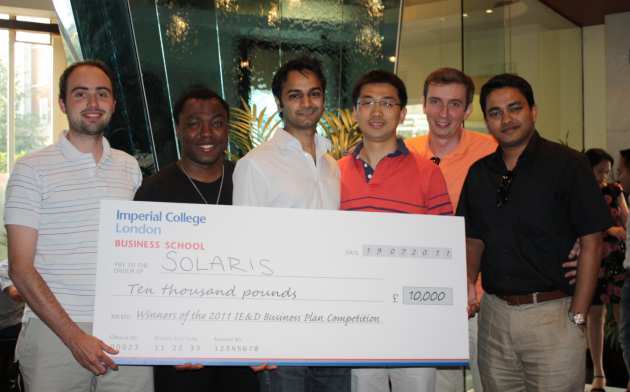 In the 21 September edition: A stem cell trial for multiple sclerosis and how solar phone chargers could help businesses in the developing world.
In the 21 September edition: A stem cell trial for multiple sclerosis and how solar phone chargers could help businesses in the developing world.
Listen to the complete streamed podcast - 21 September 2011
Or listen to individual chapters
- Recent news from the College, including a genetic cause of extreme thinness and new research to help fight drug-resistant fungal infections.
- A team of students from the Business School (pictured) talk about their competition-winning business plan for a mobile phone charging service in the developing world.
- Dr Paolo Muraro speaks about a new trial testing a stem cell treatment for multiple sclerosis.
- The tables turn on podcast presenter Gareth Mitchell as Sim on Levey quizzes him on his life as an Imperial student and lecturer and 10 years of reporting on technology for the BBC World Service.
31 August edition
 In the 31 August edition: How an innovative net design could make fishing more ethical, and Professor David Gann on how open data could transform the infrastructure of our cities.
In the 31 August edition: How an innovative net design could make fishing more ethical, and Professor David Gann on how open data could transform the infrastructure of our cities.
Listen to the complete streamed podcast - 31 August 2011
Or listen to individual chapters
- Latest news from the College, including surprising statin findings, a significant sperm discovery, and ancient spiders coming to life.
- Professor David Gann explains how areas such as transport, energy and waste management could be revolutionised by new applications that integrate open data.
- Innovation Design Engineering graduate Daniel Watson (above) describes how his ethical fishing net could ensure that only the right kinds of fish get caught.
- Your life on Mars: Professor Catherine Williamson, a specialist in diseases of pregnancy, imagines packing for a trip to Mars.
10 August edition
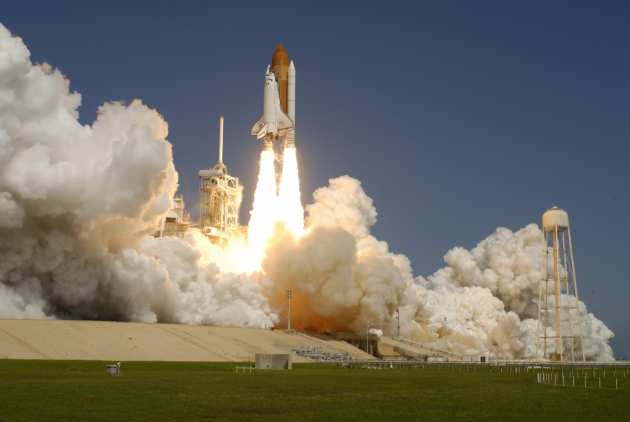 In the 10 August edition: A space scientist and a film-making alumnus share their space shuttle memories, and what Imperial’s analysis revealed about the BBC’s coverage of science.
In the 10 August edition: A space scientist and a film-making alumnus share their space shuttle memories, and what Imperial’s analysis revealed about the BBC’s coverage of science.
Listen to the complete streamed podcast - 10 August 2011
Or listen to individual chapters
- Latest news from the College, including how gastric bypass surgery changes people’s food preferences, and the new Imperial centre that applies computational methods to systems biology research.
- Professor Andre Balogh recalls his involvement in the Ulysses mission, whose launch was postponed in 1986 following the Challenger disaster.
- Imperial alumnus Chris Riley describes his experience producing a BBC documentary about the last space shuttle flight.
- Alice Bell from the Science Communication Group at Imperial explains what the group’s content analysis discovered about the BBC’s science coverage.
20 July edition
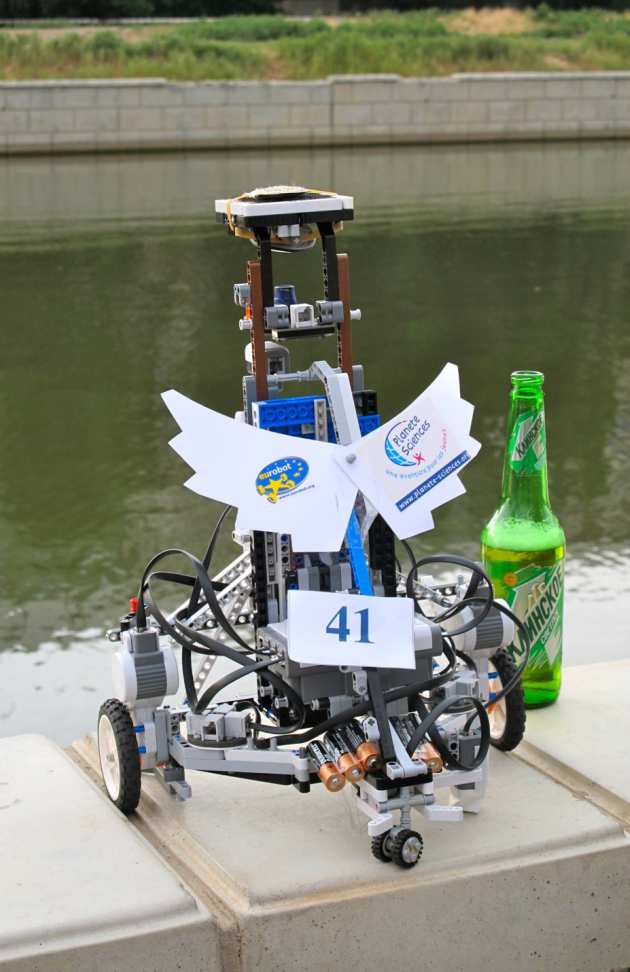 In the 20 July edition: Outgoing Chairman of the College Lord Kerr shares his memories, and a student-built robot takes on the world.
In the 20 July edition: Outgoing Chairman of the College Lord Kerr shares his memories, and a student-built robot takes on the world.
Listen to the complete streamed podcast - 20 July 2011
Or listen to individual chapters
- A behind-the-scenes look at the new Imperial magazine, for our friends, supporters and alumni, with Editor-in-Chief Tom Miller.
- Latest news from the College, including the sequencing of the potato genome and a new DNA testing device that predicts how patients will respond to drugs.
- Looking back over his time at Imperial, the outgoing College Chairman, Lord Kerr, explains how being “incompetent” meant he was perfect for the job.
- Students from Imperial’s Robotics Society and their creation, IC-r-us (above), report on their mission to Moscow for the Eurobot Final 2011.
29 June edition
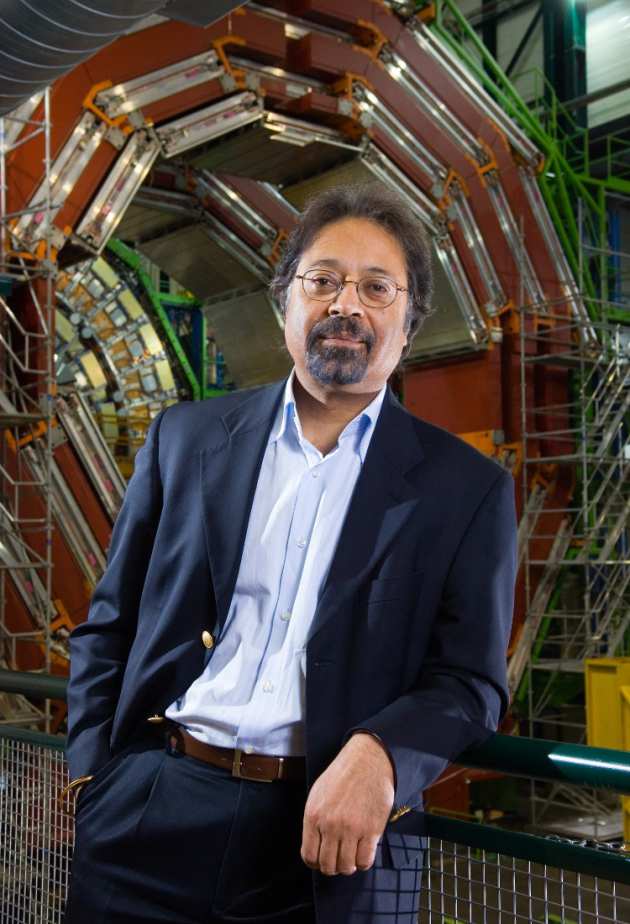 In the 29 June edition: A visit to the Cheltenham Science Festival, and the collaboration that aims to make gene therapy a reality for cystic fibrosis patients.
In the 29 June edition: A visit to the Cheltenham Science Festival, and the collaboration that aims to make gene therapy a reality for cystic fibrosis patients.
Listen to the complete streamed podcast - 29 June 2011
Or listen to individual chapters
- Gareth Mitchell, Sam Wong and Colin Smith discuss recent news from Imperial, including a new analysis of the global diabetes epidemic and a project to design materials that mimic dolphin skin.
- In the first of t wo reports from the Cheltenham Science Festival, Simon Levey speaks to Professor Tejinder Virdee (above) about why the Large Hadron Collider might be considered the greatest scientific achievement of the last 10 years.
- Professor Eric Alton recounts the progress that he and his collaborators have made towards developing an effective gene therapy for cystic fibrosis.
- Simon Levey concludes his report from Cheltenham Science Festival by asking punters including Mark Walport and David Willetts MP what major advances they expect to see in the next 10 years.
8 June edition
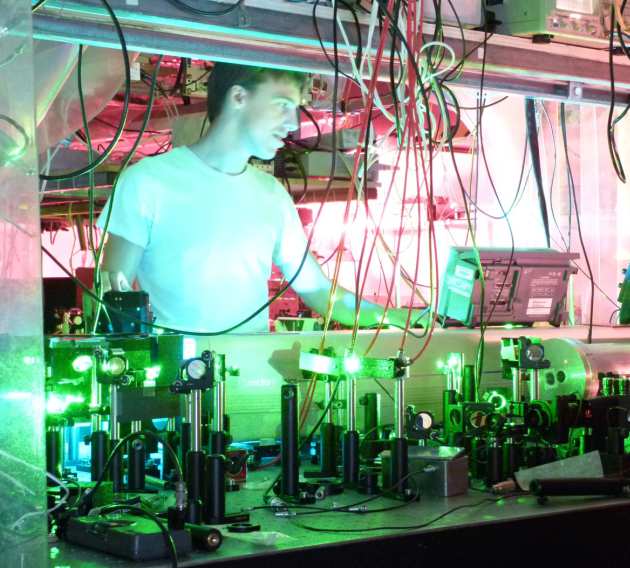 In the 8 June edition: Professor Ed Hinds shows us how to measure the shape of an electron and science communication student Ben Good envisages an artificially intelligent future.
In the 8 June edition: Professor Ed Hinds shows us how to measure the shape of an electron and science communication student Ben Good envisages an artificially intelligent future.
Listen to the complete streamed podcast - 8 June 2011
Or listen to individual chapters
- Gareth Mitchell, Sam Wong and Colin Smith discuss recent news from Imperial, including an African trial of emergency treatment that challenges WHO guidelines and a new type of low-cost cat litter developed by Imperial scientists.
- Professor Ed Hinds shows us the lab where he and his team obtained the most precise measurements ever made of the shape of the electron.
- Science communication student Ben Good envisages a world where machines have become more intelligent than humans..
18 May edition
 In the 18 May edition: Imperial scientists test a pioneering new treatment for heart fai lure, and we meet the man who was instrumental in saving the Leaning Tower of Pisa from collapse.
In the 18 May edition: Imperial scientists test a pioneering new treatment for heart fai lure, and we meet the man who was instrumental in saving the Leaning Tower of Pisa from collapse.
Listen to the complete streamed podcast - 18 May 2011
Or listen to individual chapters
- Gareth Mitchell, Sam Wong and Simon Levey discuss recent news from Imperial, including a study looking at how the UK can tackle the burden of imported tuberculosis, and a meeting of the Committee on Climate Change that discussed how Britain can get more of its energy from renewables.
- Professor John Burland talks about his work, starting 20 years ago, to prevent the Leaning Tower of Pisa from collapsing, and reveals his ideal companion for a trip to Mars.
- We talk to Dr Darrel Francis about a radical procedure that could alleviate symptoms of breathlessness in patients with heart failure, and hear from o ne of the first patients to rec eive the new treatme nt.
- Medical student Vinesh Patel tells us why he has established a Wikipedia Society at Imperial, and advises on how best to use the gargantuan internet resource.
13 April edition
In the 13 April edition: Why an Imperial scientist is collecting children's baby teeth and Lord Martin Rees explains why there's more to the universe than what we can see
Listen to the complete streamed Podcast - 13 April 2011
Or listen to individual chapters
- Gareth Mitchell, Colin Smith and Sam Wong discuss recent news from Imperial, including new insights about the Solar System's earliest rocks, and a gene that influences alcohol consumption
- Chi Onwurah MP, the shadow minister for innovation and science, recalls her time as an engineering student at Imperial more than 20 years ago
- Professor Sara Rankin talks about her collaboration with an artist to create a sculpture made from teeth
- An ex cerpt from the Astronomer Royal Lord Martin Rees's recent lecture at Imperi al, in which he spoke about the potential existence of other universes
22 March edition
In the 22 March edition: The climate science project that anyone can get involved in and Professor Robin Grimes on the nuclear crisis in Japan.
Listen to the complete streamed Podcast - 22 March 2011
Or listen to individual chapters
- Professor Robin Grimes talks about the challenges facing e ngineers at Japan’s Fukushima nuclear plant, and the future for nuclear energy
- Dr Linda Davies and Imperial physics students demonstrate how volunteers can take part in the Open Air Laboratories’ national Climate Survey by blowing bubbles and watching clouds
- John Armitage and Alex Whittaker explain what sedimentary rocks can tell us about Earth’s ancient past
- Gareth Mitchell and Laura Gallagher discuss Imperial's Big Science Pub Quiz and a podcast prize giveaway.
1 March edition
In the 1 March edition: The engineers who let down their hair to recreate a fairytale for children’s TV and the Head of Chemistry who wants to take solvents to Mars – but not for any scientific reason.
Download the comple te Podcast - 1 March 2011 (26mb)
To download right click and choose 'save targ et as' and save to your computer.
Or download individual chapters
- Gareth Mitchell, Colin Sm ith and Laura Gallagher discuss the recent news from around Imperial, including the researchers who put Rapunzel to the test for Blue Peter and the mathematicians creating their own version of the periodic table
- Imperial alumnus and author Simon Singh discusses how the UK’s libel laws are affecting science and attendees from a recent BioSoc event give their views on whether the media has failed science
- Your Life on Mars: Professor Tom Welton (Chemistry) discusses the book, luxury item and companion he would take on a trip to Mars
- Music from Imperial’s Arts Fest brings the podcast to a close
8 February edition
In the 8 February tenuously Valentine-themed edition: The researcher whose love affair with Physics took him away from a career in banking and the unfortunate marsupial mole whose lovemaking breaks its heart.
Download the complete Podcast - 8 February 2011 (26mb)
To download right click and choose 'save target as' and save to your computer.
Or download individual chapters
- Gareth Mitchell, Sam Wong and Simon Levey discuss the recent news from around Imperial, including how the health of the world’s hearts has changed over 30 years and why researchers at CERN are heartened by their recent results (5mb)
- Synthetic Biology (Part 2): Professors Paul Freemont and Richard Kitney discuss their field and explain how it has influenced a London taxi that Professor Kitney recently took a ride in (4.3mb)
- Veteran science journalist Tim Radford explains what the love life of a marsupial mole taught him about the joys of science reporting (3.2mb)
- Your Life on Mars: Daniel Bedingham discusses the book, luxury item and companion he’d take on a trip to Mars – and why his heart took him back to Physics from banking (5mb)
- Visi tors to Healthy Living Week talk about how they take care of their hearts (2.8mb)
18 January edition
In the 18 January edition: Professor David Clements talks a bout the universal appe al of the latest results from the Planck observatory and in the first of a two part series, Professors Dick Kitney and Paul Freemont tell us about the benefits of synthetic biology.
Download the complete Podcast - 18 January 2011 (29mb)
To download right click and choose 'save target as' and save to your computer .
Or download individual chapters
- Gareth Mitchell and Sam Wong discuss recent news from around Imperial , with their in-studio guests:
- Dr James Kinross explains how metabolic profiling of tissue samples could one day transform the way surgeons make decisions during an operation (6.7mb)
- Professo r David Clements gives us the cosmic low-down on the first results from the Planck satellite, including the discovery of the largest galaxy clusters ever found in the universe (4.7mb)
- Your Life on Mars: Professor Vivette Glover discusse s why taking Tolstoy to Mars could be a bit of a gamble (3.2mb)
- Synthetic Biology: (Part 1): Professors Richard Kitney and Paul Freemont explain how making biological devices using bacterial DNA could help to combat superbugs such as MRSA (6.2mb)
- Delegates at the recent Green Aviation Symposium recall how they clocked up their most recent air miles (1.6mb)


